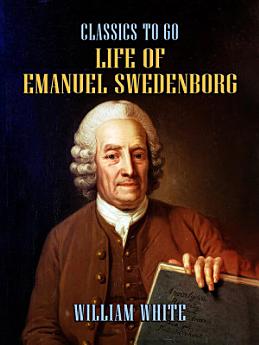Life of Emanuel Swedenborg
William White
Jun 2022 · Otbebookpublishing
Ebook
221
Pages
family_home
Eligible
info
reportRatings and reviews aren’t verified Learn More
About this ebook
About the author
William White, a 19th-century English author, is best known for his profound contributions to the study of mysticism and spirituality. Born in 1831, White's intellectual pursuits led him to explore the intricate intersections between religion, philosophy, and science, a bold endeavor during an era dominated by rigid Victorian norms. His works often delved into the esoteric and the metaphysical, challenging the conventional religious dogmas of his time.White's fascination with the mystical and the supernatural set him apart from his contemporaries. He was a pioneering figure in bringing the ideas of Emanuel Swedenborg, a Swedish theologian and mystic, to a broader English-speaking audience. White's writings were instrumental in popularizing Swedenborgian thought, which emphasized the spiritual interpretation of the Bible and the existence of an intricate spiritual world parallel to our own.Controversy surrounded White due to his unorthodox views, which often clashed with the established Church. His advocacy for a more personal and experiential approach to spirituality resonated with many, influencing a wave of contemporary writers and thinkers who sought to reconcile science with spirituality. Figures such as Ralph Waldo Emerson and William Blake found inspiration in the ideas White championed, which contributed to the burgeoning transcendentalist movement.White's legacy lies in his fearless exploration of the unknown and his ability to articulate complex spiritual concepts in a way that was accessible and compelling. His work continues to intrigue modern readers who are drawn to the mysteries of existence and the quest for deeper meaning beyond the material world.
Rate this ebook
Tell us what you think.
Reading information
Smartphones and tablets
Install the Google Play Books app for Android and iPad/iPhone. It syncs automatically with your account and allows you to read online or offline wherever you are.
Laptops and computers
You can listen to audiobooks purchased on Google Play using your computer's web browser.
eReaders and other devices
To read on e-ink devices like Kobo eReaders, you'll need to download a file and transfer it to your device. Follow the detailed Help Center instructions to transfer the files to supported eReaders.








